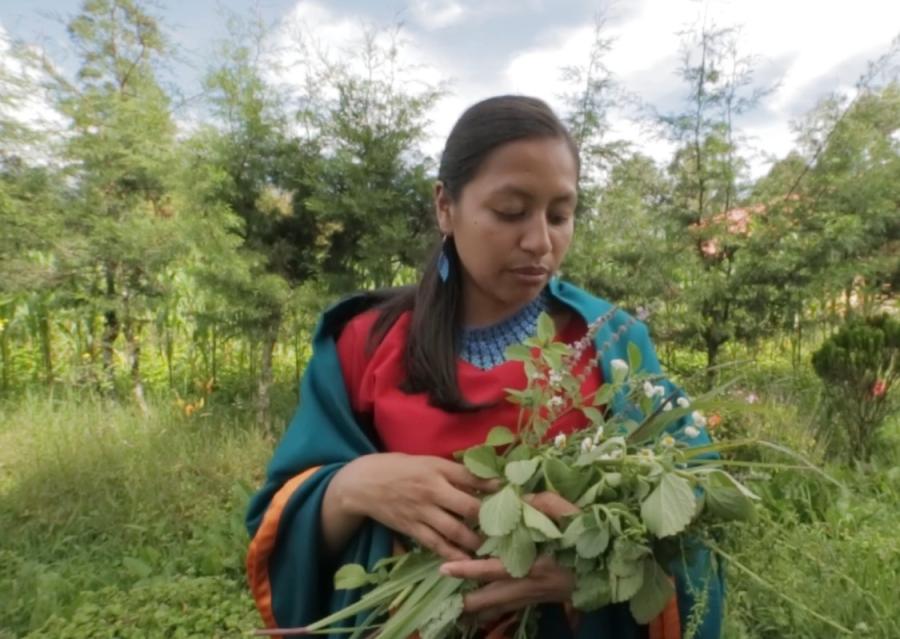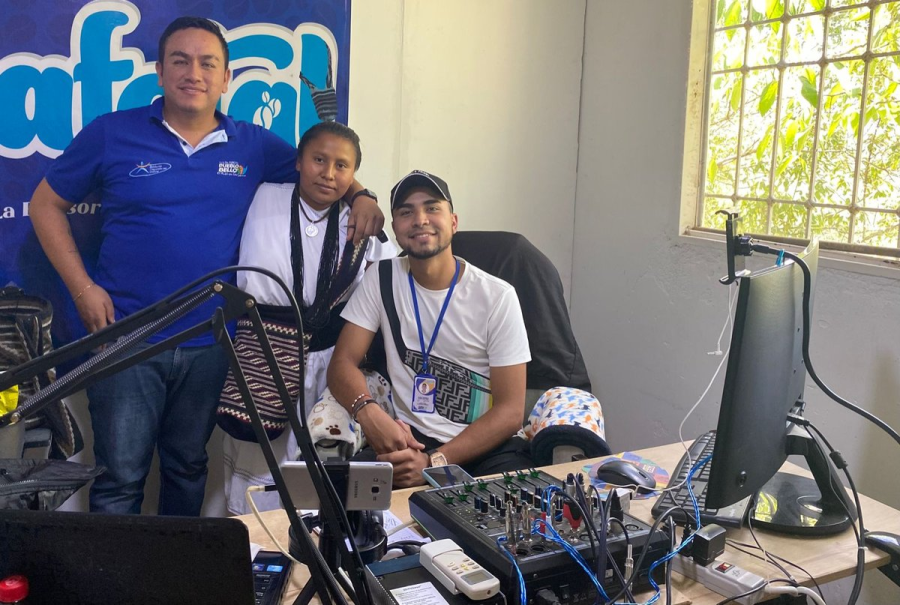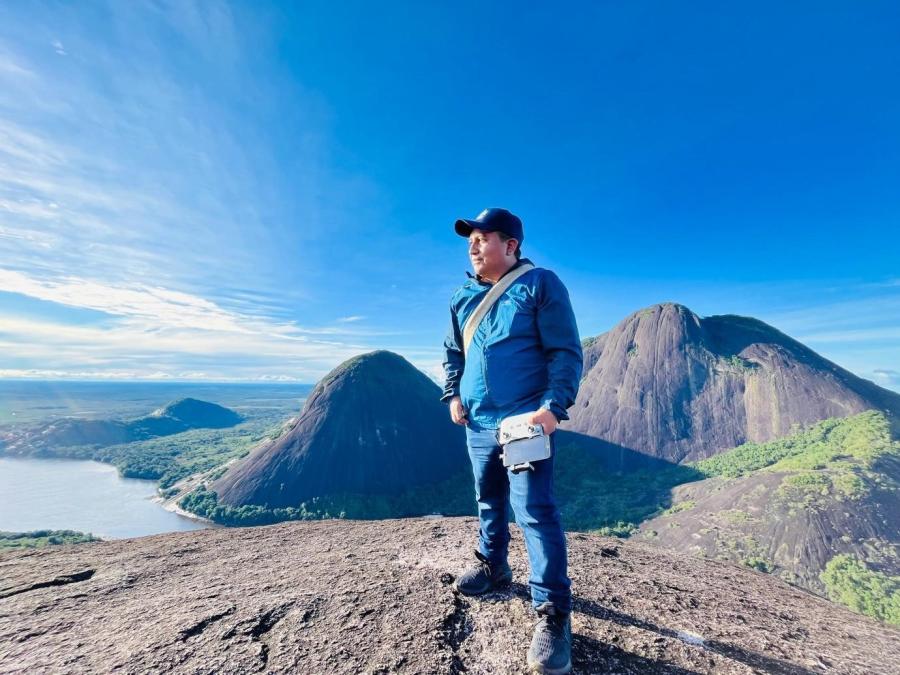Muellamués - A Colombian Community Under Attack
The indigenous community of Muellamués, Colombia, located on the Colombia-Ecuador border, 25 km northwest of the Colombian city of Ipiales, has experienced an unprecedented wave of official repression this past year. Since November 17, 1984, when the Muellamueses occupied the hacienda Simancas, the community has suffered a series of violent attacks led by Nelly Fierro, the former hacendada (hacienda owner), in concert with local police and authorities from the municipal seat of Guachucal and with departmental authorities in Pasto, Nariño. This repression has resulted in the torture and imprisonment of community members, attempts on the life of the governor of Muellamués, José Micanquer, and the death of at least two Indians.
Muellamués' Autonomy Threatened
Descendants of the pre-Columbian Pasto, the Muellamueses are Indian small holders who inhabit the mountains of the highest municipality in Colombia. Situated more than 3,000 meters above sea level, they live on a reservation whose title was granted during the eighteenth century, and cultivate potatoes and other Andean crops as well as engage in dairy farming. As reservation members, the Muellamueses are entitled to a certain degree of political autonomy, embodied in a cabildo or reservation council, and to territorial autonomy, since their lands are communally owned and possession of reservation lands by nonmembers is illegal.
Nevertheless, Muellamués has faced constant pressure to dissolve this autonomy. Since the nineteenth century, hacendados have snatched up the best valley lands, leaving Indians only the rugged mountain slopes and a shrinking land base. At the turn of the century, the Colombian government sold indigenous lands to the government of Ecuador, thus dividing the broader Pasto community. Recently, government officials and private citizens have attempted to dissolve the reservation system by claiming that the communities of southern Nariño are no longer culturally Indian.
Like their neighbors, the Muellamueses are monolingual Spanish speakers, closely linked to the local market economy, the landless and land-poor spending many months each year engaged in wage labor in other Colombian departments as well as in Ecuador. Nevertheless, the Muellamueses retain a strong indigenous identity and perceive themselves as culturally distinct from other peasants in Nariño. They point to their moiety system, Andean modes of labor exchange and a distinct historical vision as evidence of their Indianness.
Muellamueses Take Steps to Politicize Themselves
Indigenous organizing has flowered in southern Nariño during the past decade, beginning in the neighboring reservations of Gran Cumbal and extending into Muellamués during the 1980s. The Indian movement in Nariño is led by traditional reservation councils, the cabildos, linked in a loose network to other cabildos in the department of Cauca to the north; the Muellamueses work independently of the more well-known Colombian Indian organizations, such as ONIC, the National Indian Organization of Colombia.
The first step in the politicization of Muellamués was what Indian activists call the "recovery of their history and thought." Based on the study of reservation titles and other documents, the community traced the process through which their territorial holdings were legitimized and subsequently stolen. By studying history, the community hoped to recover the recognition that their culture was different, since this consciousness had been progressively lost as community members migrated to other regions. Recovery of customs, thought and historical vision also included an emphasis on the "recovery of the economy." Muellamués and neighboring communities have been reintroducing ancient agricultural methods and pre-Columbian crops, and have been most successful in their reintroduction of quinoa (Chenpodium quinoa) to the area.
This process of concientización culminated in 1984 with the recovery of the hacienda of Simancas which was traditionally part of the Muellamués reservation lands. On November 17, 1984, the people of Muellamués were called by the sounding of a conch shell to Simancas, where men, women and children set to work planting potatoes and quinoa. The Indians' only weapons included their agricultural tools, the knowledge of their reservation title and their belief that as the First Americans, they were reclaiming lands that were rightfully theirs. Nevertheless, they encountered resistance when they entered Simancas: the hacendada Nelly Fierro, her sons and the Guachucal police shot at them and imprisoned and abused them. During a subsequent occupation, in March 1985, the police attacked cabildo members, breaking one cabildante's staff of office.
Truce Fails to Bring Peace
Hoping to pacify the region, the governess of Nariño imposed a three month "truce" in March 1985, ordering Indians and landlords to refrain from entering Simancas. Arrangements were to be made with INCORA, the Colombian agrarian reform agency, to solve the problem of the ownership of Simancas. Traditionally, Indians seeking to reclaim haciendas have been required to pay INCORA for these lands, and the hacendado is usually reimbursed for this loss. Moreover, INCORA takes over managing the hacienda, which is transformed into an agricultural cooperative.
The Muellamueses, while not opposed to INCORA's intervention in the dispute, refused to pay for lands that were traditionally part of the reservation, and demanded that the cabildo be granted the right to administer the reclaimed territory. By the end of the "truce," no clear solution was in sight, and the community reoccupied Simancas for a month. The local police began an "investigation" of the leaders of the occupation, and Nelly Fierro began to terrorize Muellamués, roaming the reservation at night, shooting at Indians and attacking the homes of the governor and other cabildo members.
In response, the community sent a delegation to Bogotá, spurring the visit of the Attorney General for Indian Affairs to Muellamués. He promised that the land problem would be solved in favor of the Indians, and that action would be taken against the hacendada and local police for their violent attacks on reservation members.
Politics in Colombia, however, is a complex affair. Although the Betancur government has supported a national dialogue to bring peace to the nation and has mounted reforms, power on the local level remains in the hands of local elites: in southern Nariño, hacendados like Nelly Fierro are very influential. With a presidential election coming this spring, and with the series of disasters which culminated in the storming of the Palace of Justice last November 1985, and the recent eruption of the Nevado del Ruiz, the Betancur government has become increasingly powerless in the face of these local interests.
In Muellamués, this has meant a heightening of Indian-landlord conflict and increasing attacks on the indigenous community. Nelly Fierro's nightly forays into the reservation have resulted in the deaths of at least two reservation members and the wounding of dozens more. In November 1984, police murdered an Indian by firing 63 bullets into his body. On November 22, police entered the reservation, beat and tortured community members and arrested 18 Indian men and women, accusing them of "kidnapping, destroying property and torture," and leaving their young children to fend for themselves. Joaquín Cuatín, an elderly man, was beaten and tortured so badly that he lost an eye. The November 22 attack was in retaliation for an earlier confrontation in which community members defended themselves against an attack the hacendada launched on the governor's home.
Most of the imprisoned community members have since been released from prison on December 27, as a result of demonstrations by the children of Muellamués and pressure from Bogotá. Joaquín Cuatín, the victim of torture, was released in February 1986. When CSQ went to press one community member remained in prison: Luis Alberto Fuelantala, the community chauffeur, is accused of planning to kidnap the landlord's son, an accusation based only on flimsy evidence linking him to the theft of an hacienda vehicle, since he is the only community member who knows how to drive. Fuelantala is not expected to gain his freedom immediately, because there is currently no judge presiding over the case.
Moreover, there has been no investigation into the atrocities perpetrated by the local police and hacendados against the community of Muellamués. Nelly Fierro continues to roam reservation lands in search of the new governor who took office in January, and whose residence is being kept secret to shield him from the landlord's attacks. In conjunction with anitiguerrilla military operations currently underway in the neighboring department of Cauca, public meetings in the indigenous communities of Nariño have been broken up and harassed by the Colombian army.
The community, along with the Pastro-based Group in Solidarity with the Indian Struggle, have asked that concerned organizations and individuals protest these violations of the rights of the Indians of Muellamués by demanding that the guilty parties be brought to justice, that Luis Albert Fuelantala be released from prison, that the Colombian army stay off reservation lands and that the community lands be restored to the cabildo. Letters should be sent to: Presidente Belisario Betancur, Palacio de Nariño, Bogotá, Colombia. Send copies to: Colombia Committee for Human Rights, PO Box 3130, Washington, DC 20010.
In addition, contributions to defray legal costs are greatly needed and appreciated, and can be sent to: Corporación Centro de Estudios Andinos, Apartado Aéreo 1204, Pasto, Nariño, Colombia.
Article copyright Cultural Survival, Inc.



